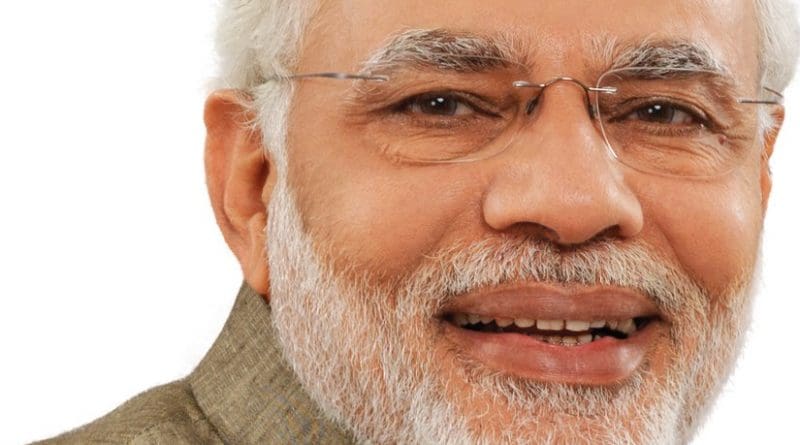Attack On India: A Shock To Modi’s ‘Innovative’ Diplomacy – OpEd
After a successful two day visit to Russia, India’s Prime Minister Narendra Modi turned to Afghanistan where he arrived at Kabul in the early morning of December 25. After a warm embrace by the Afghan President Ashraf Ghani, both proceeded to inaugurate the building of Afghan Parliament (Dar ul Aman), built with Indian assistance. The construction of Afghan Parliament by world’s largest democracy is a great gesture that has set the path for Afghanistan towards the institutionalization of its democracy.
In his inaugural address to the Aghan Parliament, PM Modi spoke about the Indo-Aghan ties, which transcend the dimensions of time, space and distance, seeping into a shared consciousness. He pledged India’s commitment to provide all possible support for the cause of a strong and stable Afghanistan of future. Elucidating his intentions about friendly ties with Pakistan, he spoke about Pakistan as being a gateway between India and Afghanistan.
The PM’s departure from Kabul came with the surprise announcement of his landing at Lahore en route New Delhi. It was the first time in 11 years that an Indian Prime Minister was visiting Pakistan. Former Prime Minister Atal Bihari Vajpayee had visited Pakistan back in 2004. Breaking the official protocol, Pakistani Prime Minister Nawaz Sharif made his way to the Lahore Airport to receive his Indian counterpart, from where he was escorted to Sharif’s hometown to attend his grand-daughter’s wedding ceremony. Coincidentally, December 25 also happens to be the birthday of PM Sharif, as well as Former PM Vajpayee — and from Pakistan, PM Modi directly headed to Former PM Vajpayee’s residence to convey birthday greetings. It was a clear signal towards a new era of Indian diplomacy with the use of innovative channels to reach out to fellow South Asian neighbors.
In fact, this unconventional move by PM Modi was termed as ‘innovative diplomacy’, being suggested as a more successful and closer form of engagement with Pakistan.
However, a few days after this positive mood began to gain ground; two incidents have left the Indian establishment in shock and threaten to derail the constructive engagement which had taken months to arrive at the bonhomie shown between these leaders on December 25.
The first was an attack on the Indian Airbase at Pathankot (situated 40 Kilometers from the Indo-Pak border) on January 2, in the Indian state of Punjab, which shares its western borders with Pakistan. This region consists of a National Highway connecting the Kashmir valley with the rest of the Indian state. Hence, its proximity to the International border makes it vulnerable. The airbase under attack too is a strategically important airbase which was witness to many attacks during the 1965 and 1971 Indo-Pak wars. The nature of the attack clearly shows the geopolitical dimensions which the militants clearly exploited.
The second attack took place in Afghanistan on the night of January 3, when the Indian consulate at Mazar-e-Sharif was targeted by militants. However, this is not a new attack on Indian missions in Afghanistan as in past the embassy in Kabul was attacked twice in 2008 and 2009. In August 2013 Indian consulate in Jalalabad was targeted killing nine civilians and later in May 2014, armed militants attacked the Indian consulate in Herat.
What is new about these two attacks is the pace and intensity with which the attacks have been carried out following the PM Modi’s visit. These attacks state that it is high time that besides strengthening the security measures in India as well as her missions abroad, strong protest must be lodged with the Pakistani establishment to identify the actors involved in derailing the peace process.
It must not be forgotten that when India’s then PM Vajpayee visited Lahore in 1999 to reinvigorate ties, his return to India was greeted by the Indo-Pak war, following which an army coup in Pakistan overthrew Nawaz Sharif. 17 years down the road, these gruesome attacks have landed the Indian establishment into a déjà vu situation, reviving the dilemma of analyzing which institutions actually run Pakistan.
*Prateek Joshi is pursuing post-graduation work at South Asian University, New Delhi.

